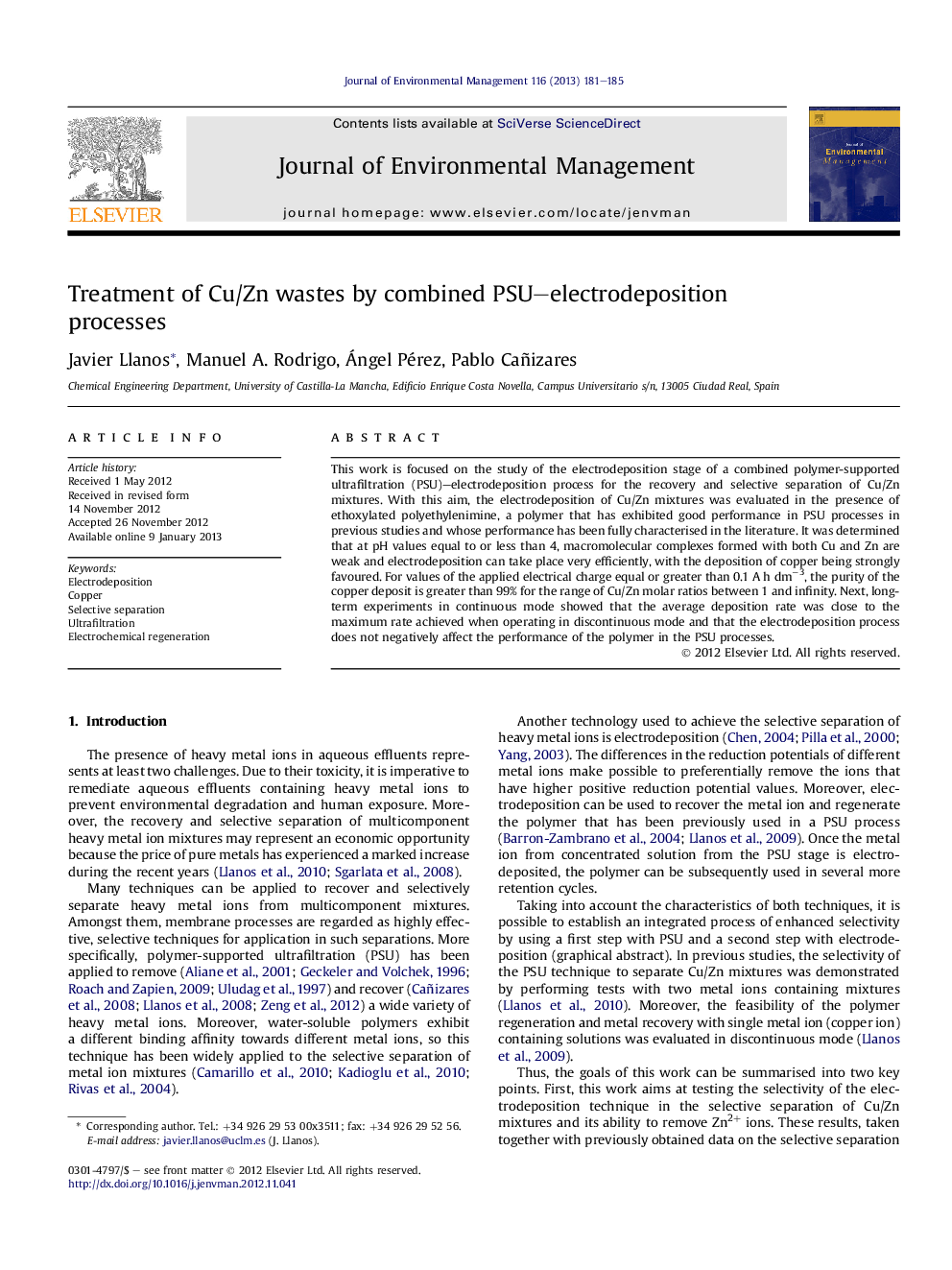| Article ID | Journal | Published Year | Pages | File Type |
|---|---|---|---|---|
| 1056394 | Journal of Environmental Management | 2013 | 5 Pages |
This work is focused on the study of the electrodeposition stage of a combined polymer-supported ultrafiltration (PSU)–electrodeposition process for the recovery and selective separation of Cu/Zn mixtures. With this aim, the electrodeposition of Cu/Zn mixtures was evaluated in the presence of ethoxylated polyethylenimine, a polymer that has exhibited good performance in PSU processes in previous studies and whose performance has been fully characterised in the literature. It was determined that at pH values equal to or less than 4, macromolecular complexes formed with both Cu and Zn are weak and electrodeposition can take place very efficiently, with the deposition of copper being strongly favoured. For values of the applied electrical charge equal or greater than 0.1 A h dm−3, the purity of the copper deposit is greater than 99% for the range of Cu/Zn molar ratios between 1 and infinity. Next, long-term experiments in continuous mode showed that the average deposition rate was close to the maximum rate achieved when operating in discontinuous mode and that the electrodeposition process does not negatively affect the performance of the polymer in the PSU processes.
Graphical abstractFigure optionsDownload full-size imageDownload as PowerPoint slideHighlights► The selective separation of Cu/Zn mixtures by PSU/electrodeposition is viable. ► The process is highly efficient at pH values equal to or less than 4. ► The system is selective to the deposition of copper. ► The long-term electrodeposition is performed at a high rate. ► There is no influence of the electrodeposition process on the polymer performance in PSU processes.
